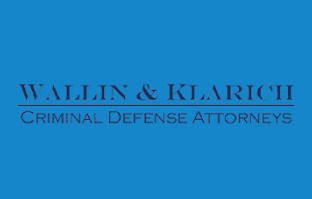Distribution of Mislabeled Products in Interstate Commerce is a Federal Offense (21 U.S.C. § 331)
Can you be prosecuted if you participate in interstate commerce involving mislabeled or misbranded consumer products? Absolutely.

Recently, federal prosecutors charged an Iowa egg company and two of its executives with violating federal food and drug safety laws after allegedly selling poisonous eggs to consumers. The charges stem from a 2010 salmonella outbreak that caused thousands of people to get sick after eating eggs that had been dangerous to eat for several months.1
According to a federal complaint filed in U.S. District court, Quality Egg LLC sold its products for years labeled to appear not as old as they really were. The 2010 salmonella outbreak spawning these charges led to a recall of 550 million eggs.2
Two company executives were charged with a misdemeanor for distributing expired food into interstate commerce. The egg company was also charged with a felony for intent to defraud by way of misbranding its products.
Federal Food Drug and Cosmetic Act (21 U.S.C. § 331)
The Federal Food Drug and Cosmetic Act (FDCA) prescribes criminal penalties for engaging in interstate commerce of adulterated or misbranded foods, drugs, cosmetics, tobacco, or medical devices. Enacted in 1938, the potential consequences of an FDCA violation range from a warning to a heft fine and/or imprisonment. Moreover, the Food and Drug Administration (FDA) can and generally will respond to violations through the use of civil sanctions such as seizures, injunctions and monetary penalties.
The FDCA is incorporated under federal law as title 21, section 331 of the United States Code. Not only is it a crime to adulterate or misbrand consumer products, it is also a federal offense to knowingly “traffic” expired or mislabeled products. Trafficking may include:
- Introducing for sale;
- Delivering;
- Receiving; or
- Manufacturing;
A food is considered “mislabeled” if it:
- Has a false or misleading label;
- Is offered for sale under the name of another food;
- If it is an imitation of another food unless prominently labeled “imitation”;
- Its container is so made, formed or filled to be misleading; or
- Its packaging lacks:
- The name and place of business of the manufacturer, packager, or distributor; and
- An accurate statement of the quantity of the contents in terms of weight, measure, or numerical count, except as permitted.
Exceptions to the law prohibiting mislabeled food apply if the violation exists only because the product was incorrectly advertised. Other defenses to a violation under 21 U.S.C. section 331 may be applied if you can demonstrate a “good faith” purchase or receipt of tainted or mislabeled products from an identifiable supplier.
Among many other laws regulating interstate commerce of consumer products, you also violate federal law if you do any of the following:
- Refuse to permit access to records following an investigation into tainted products;
- Fail to make or maintain any record as required by federal food and drug safety laws; or
- Refuse to permit inspection of suspected adulterated or misbranded products.
This is not an exhaustive list as the FDCA is a complex body of law. If you are suspected of being in violation of a federal law regarding a consumer product, you should immediately contact a knowledgeable and experienced attorney regarding your specific case.
Prosecution for Violating the FDCA
As a matter of public policy, the FDA encourages self-correction of alleged violations of the FDCA over criminal prosecution. Generally, if a violation is suspected, the FDA will provide the alleged offender with the opportunity to correct unlawful conduct before taking further action.
The standard practice of the FDA is to afford an alleged violator a hearing (known as a “section 305” hearing). However, the decision of whether to pursue criminal violations of the FDCA lies entirely within the discretion of the U.S. Secretary of Health and Human Services.
Prosecution becomes more likely if the offender was previously notified of suspected violations and thereafter refused to correct the offending conduct. In addition, if the violation was intentional, easily detectable, preventable, fraudulent, or life threatening, prosecution will be more likely. Violations which cause economic injury are viewed no differently than violations which cause injury to the public health.3
Consequences of Distributing Mislabeled Products in Interstate Commerce
If a violation of the FDCA results in criminal prosecution, generally, a first offense conviction of federal law under 21 U.S.C. section 331 involving a mislabeled consumer product other than certain drugs is punishable as a misdemeanor, carrying a maximum sentence of one year in federal prison and/or a $1,000 fine (21 U.S.C. § 333(a)).

However, a subsequent violation, or if the violation occurred “with the intent to defraud or mislead,” may be charged as a felony and upon conviction is punishable by up to three years in prison and/or a maximum $10,000 fine.
The consequences are much greater if the product involved was a prescription drug as defined under federal law. Violating federal law prohibiting the unlawful marketing of prescription drugs can result in a prison sentence up to 10 years and/or cost you a fine of up to $250,000 (21 U.S.C. § 333(b)).
Additionally, you can be assessed civil penalties ranging as high as $10 million in addition to or instead of being held criminally liable (21 U.S.C. § 333(f)).
Contact Wallin & Klarich if You are Facing FDCA Violations
If you or someone you care about is facing federal charges of violating any of the provisions of the federal Food Drug and Cosmetic Act, contact one of our experienced federal defense attorneys at Wallin & Klarich right away.
Our attorneys at Wallin & Klarich have been successfully representing our clients in federal court throughout Southern California for over 40 years. We may be able to negotiate for a voluntary correction of an alleged violation without involving criminal prosecution. If your case is prosecuted, we may be able to have the charges against you reduced or dismissed and help you avoid the more serious consequences of a conviction such as imprisonment.
With offices in Los Angeles, Sherman Oaks, Torrance, Tustin, San Diego, Riverside, San Bernardino, Ventura, West Covina and Victorville, Wallin & Klarich has an established reputation of providing our clients with the very best legal representation. We will help you get the best result possible in your case.
Call us today at (877) 4-NO-JAIL or (877) 466-5245 for a free telephone consultation. We will get through this together.
1. [KETV Omaha: “Iowa egg company slapped with federal charges for outbreak”; http://www.ketv.com/news/iowa-egg-company-slapped-with-federal-charges-for-outbreak/26103180#!WuNFx]↩
2. [Id.]↩
3. [National Association of Criminal Defense Lawyers: “Defending Against Food & Drug Prosecutions”; http://www.nacdl.org/CHAMPION/ARTICLES/97jul02.htm]↩


